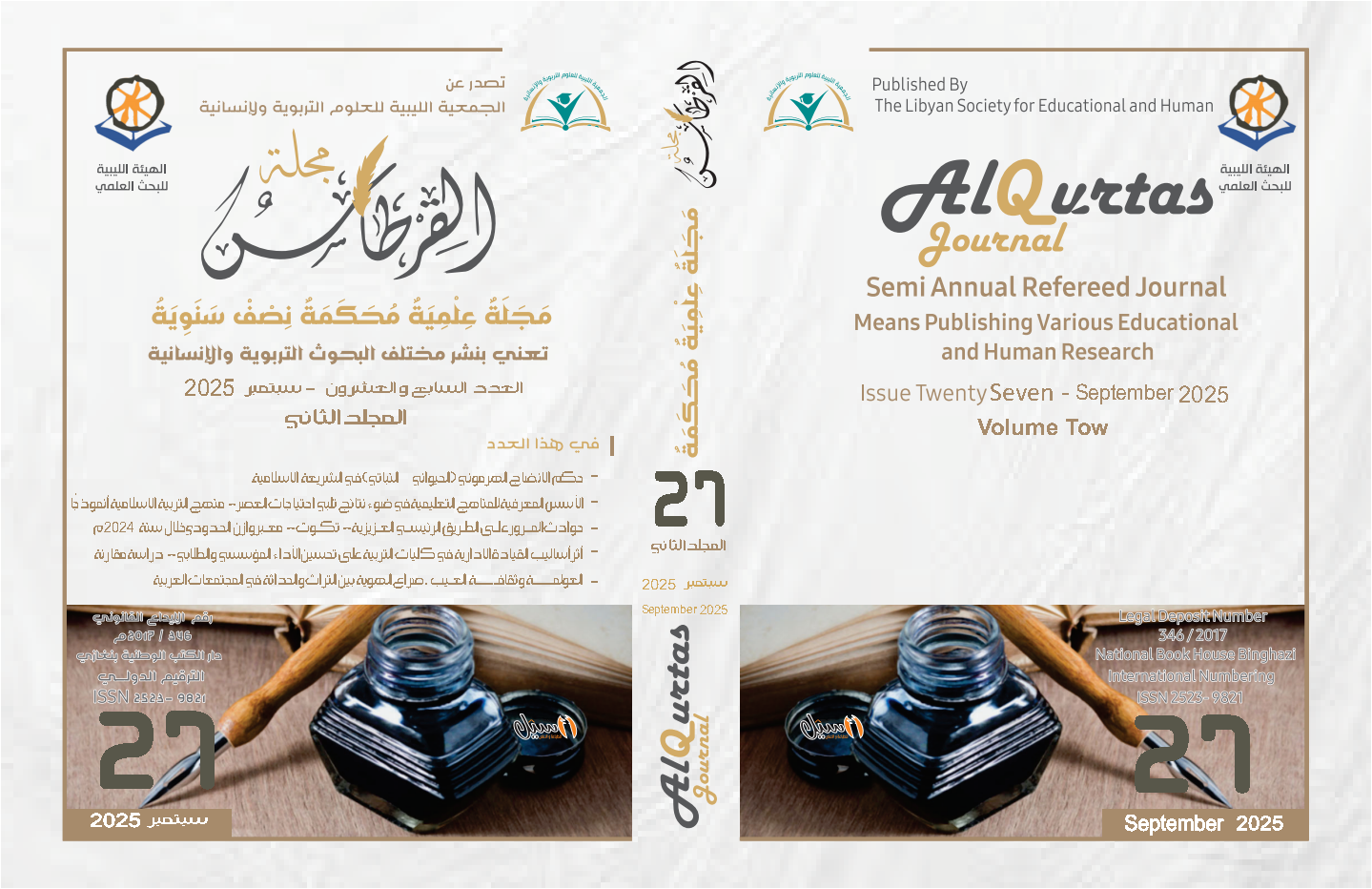الأسس المعرفية للمناهج التعليمية في ضوء نتائج تلبي احتياجات العصر- منهج التربية الإسلامية أنموذ ًجا-
Contenu principal de l'article
Résumé
الأسس المعرفية للمناهج التعليمية في ضوء نتائج تلبي احتياجات العصر- منهج التربية الإسلامية أنموذ ًجا-
Téléchargements
Les données relatives au téléchargement ne sont pas encore disponibles.
Renseignements sur l'article
Comment citer
الأسطى ع. ا. ع. (2025). الأسس المعرفية للمناهج التعليمية في ضوء نتائج تلبي احتياجات العصر- منهج التربية الإسلامية أنموذ ًجا-. Al-Qurtas Magazine, 2(27). Consulté à l’adresse https://alqurtas.alandalus-libya.org.ly/ojs/index.php/qjhar/article/view/1337
Rubrique
المقالات

Cette œuvre est sous licence Creative Commons Attribution - Pas d'Utilisation Commerciale 4.0 International.
